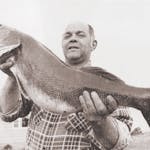The DNR plans to ask Minnesota turkey hunters how the agency can increase hunter opportunity and satisfaction during the spring turkey season.
A series of four public discussion meetings will be held later in September and in October.
"These are regional discussion meetings where we're asking citizen participants to help review, evaluate and make recommendations on how DNR can improve the spring turkey season," said Steve Merchant, DNR wildlife populations program manager.
Spring turkey hunting in Minnesota has grown from 400 hunters harvesting 94 turkeys in 1978 to 47,000 hunters harvesting 11,734 birds in 2015. The record harvest occurred in 2010 when 46,500 hunters took nearly 13,500 turkeys.
Despite unlimited license availability, expanded youth and archery opportunities and an increasing turkey range, the number of people who turkey hunt appears to be plateauing, the DNR says.
Here's more from the DNR news release:
"When this native bird was being restored here in Minnesota, it made sense to conduct very conservative seasons," Merchant said. "Now that the wild turkey population has grown and expanded to occupy all but northern Minnesota's boreal forest region, it's time to take a comprehensive look at the spring turkey season structure and design."
Anyone can register to attend one of the four regional turkey hunting meetings that will take place in St. Paul on Tuesday, Sept. 29; New Ulm on Wednesday, Sept. 30; Winona on Tuesday, Oct. 6; or Alexandria on Thursday, Oct. 8. All meetings will take place from 6 p.m. to 8:30 p.m. and include refreshments.
Registration is requested because space is limited to 36 participants per meeting. People can register between Thursday, Sept. 3, and Friday, Sept. 25, on the DNR website at www.mndnr.gov/turkey or by calling 651-259-5204. There is no registration fee.
At each meeting, DNR staff will provide an overview of turkey hunting and turkey population status. Participants will then be led through a series of facilitated small-group discussions, where they can explore ideas with fellow stakeholders and DNR staff. Topics for discussion will include the spring turkey hunting season structure and regulations, and how to expand hunting opportunities, improve hunter satisfaction and sustain a healthy turkey population.
Participants' input will be recorded and shared with wildlife staff as they consider which changes, if any, to make to the 2016 spring turkey hunt. The public also will have an opportunity to provide input before any changes resulting from this process take effect.






